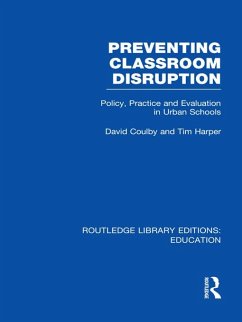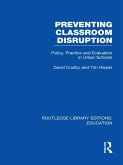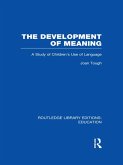This book advocates the latter philosophy and examines the best ways of coping with the problem. These concern both teacher skills and school organisational flexibility. In addition, the authors propose the provision of a support team whereby local authorities can help schools, teachers and children with problems of disruption without setting up 'sin-bins'. Change is thus shown to be possible at three levels - teachers, headteachers and local authorities. Detailed illustrative case material is presented throughout the book.
Dieser Download kann aus rechtlichen Gründen nur mit Rechnungsadresse in A, B, BG, CY, CZ, D, DK, EW, E, FIN, F, GR, HR, H, IRL, I, LT, L, LR, M, NL, PL, P, R, S, SLO, SK ausgeliefert werden.









